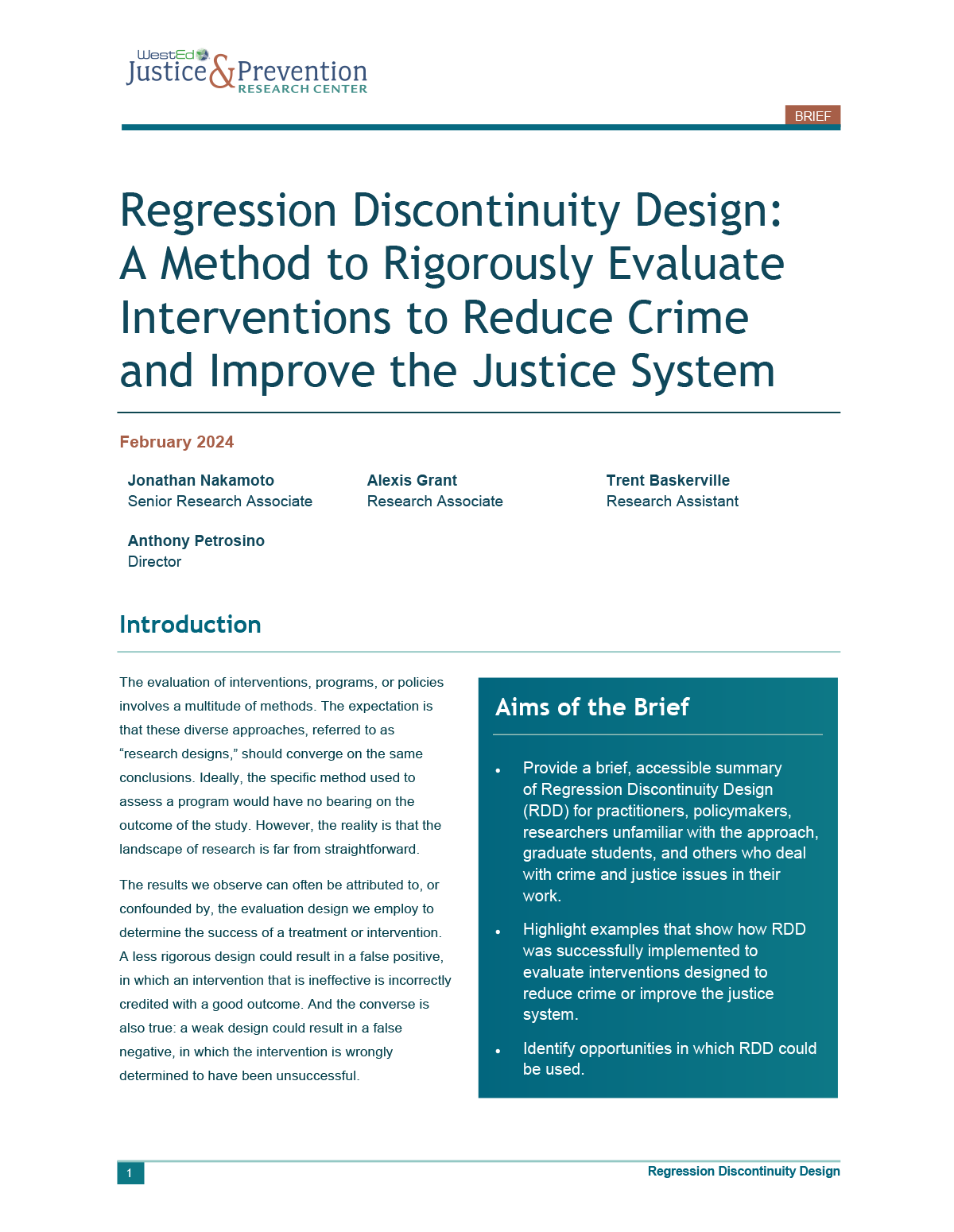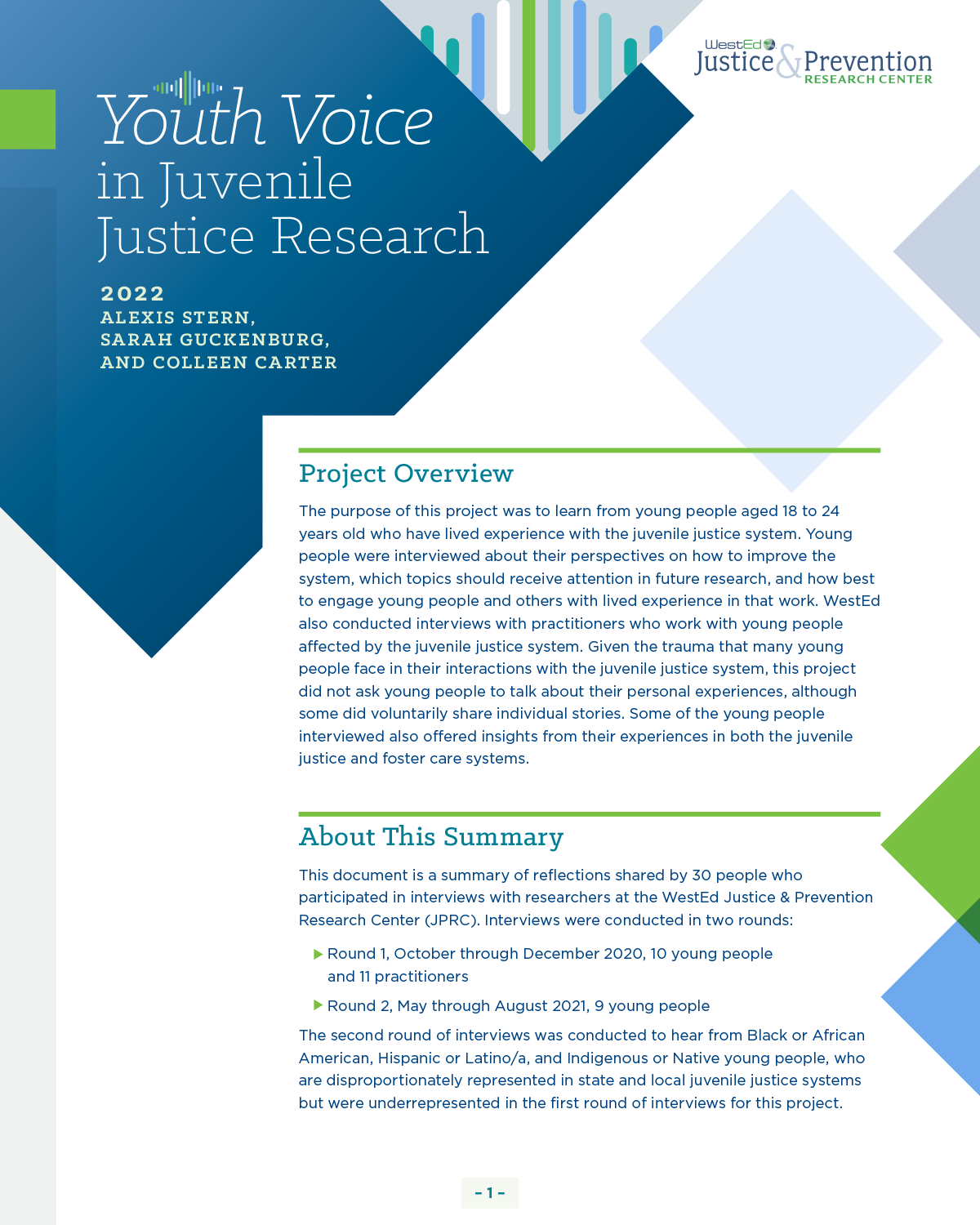Regression Discontinuity Design: A Method to Rigorously Evaluate Interventions to Reduce Crime and Improve the Justice System
Description
To address challenges within traditional research designs for crime reduction and justice system improvement, this brief from WestEd’s Justice and Prevention Research Center provides information about the Regression Discontinuity Design (RDD) method.
The brief shares a comprehensive overview of the RDD method that emphasizes its significance and efficacy in evaluating interventions in real-world scenarios. It advocates for increased RDD adoption, highlighting ethical advantages and the potential for more accurate and applicable research outcomes compared to other common evaluation approaches.
Researchers, policymakers, and practitioners seeking ethical, practical, and data-driven approaches to intervention evaluation will also find practical guidance for employing RDD.
Read three study summaries that utilized the Regression Discontinuity Design (RDD) method.
Resource Details
Product Information
Copyright: 2024Format: PDF
Pages: 12
Publisher: WestEd
Stay Connected
Subscribe to the E-Bulletin and receive regular updates on research, free resources, solutions, and job postings from WestEd.
Your download will be available after you subscribe, or choose no thanks.







